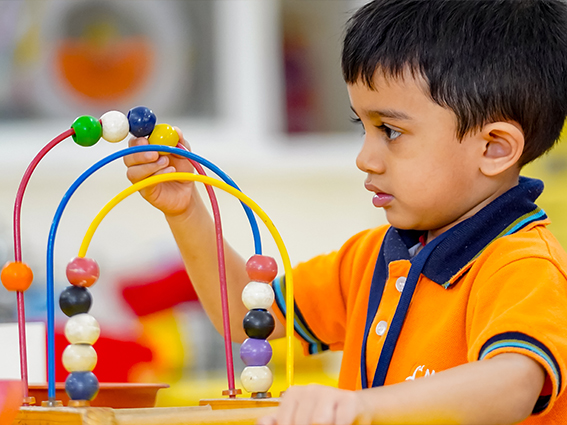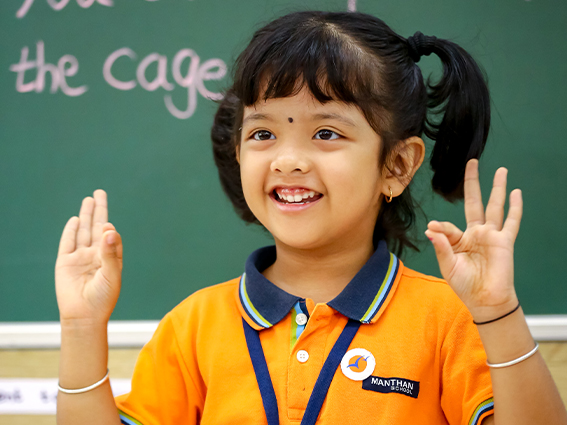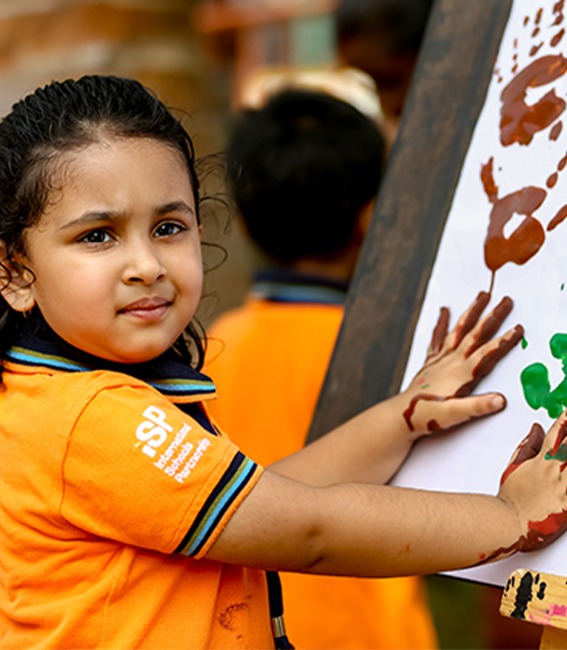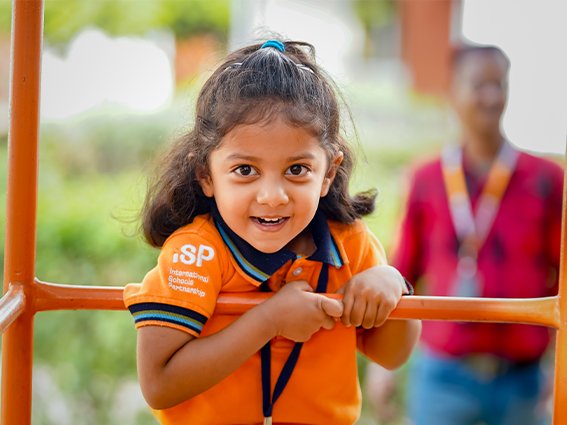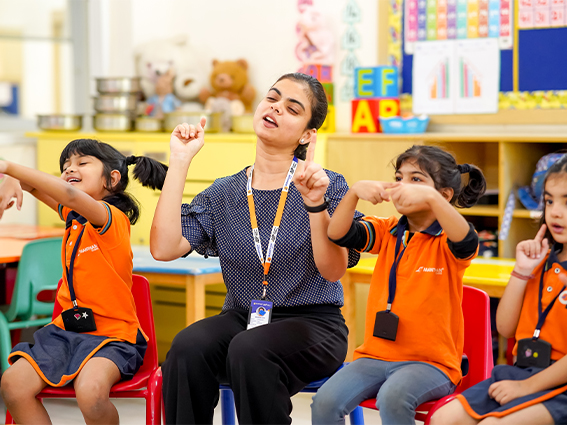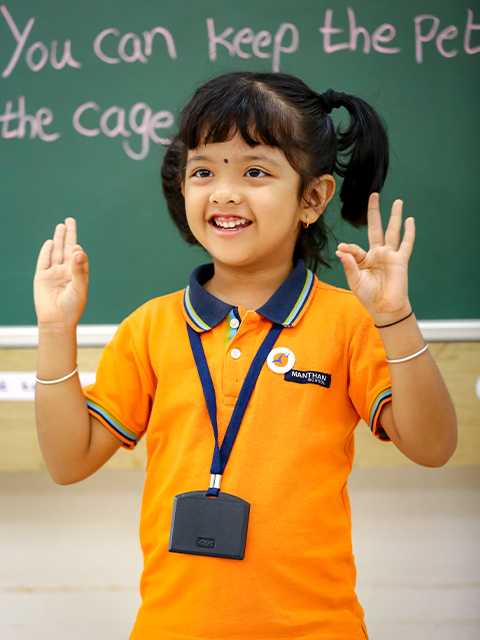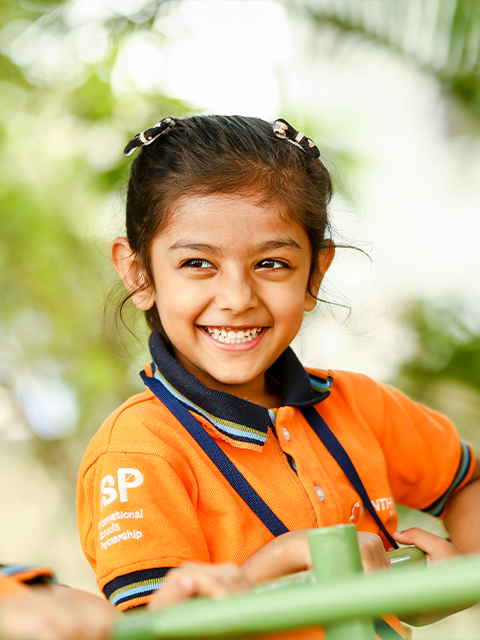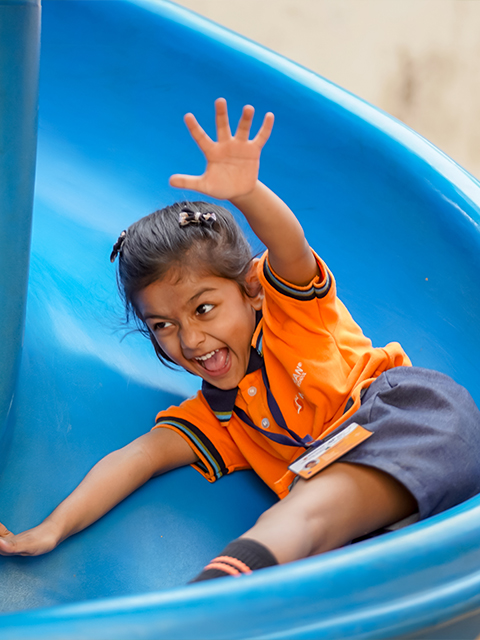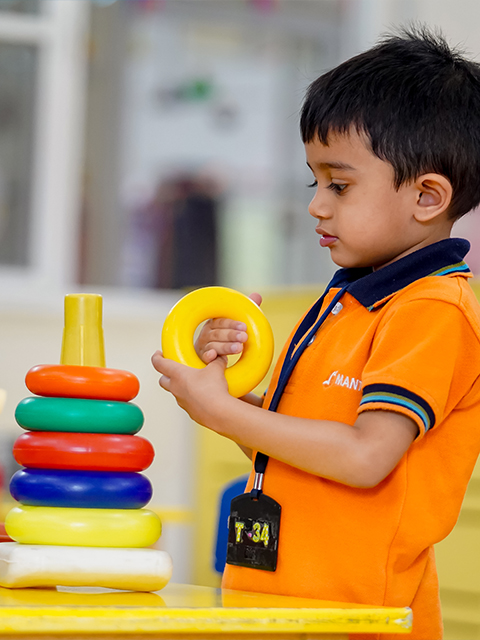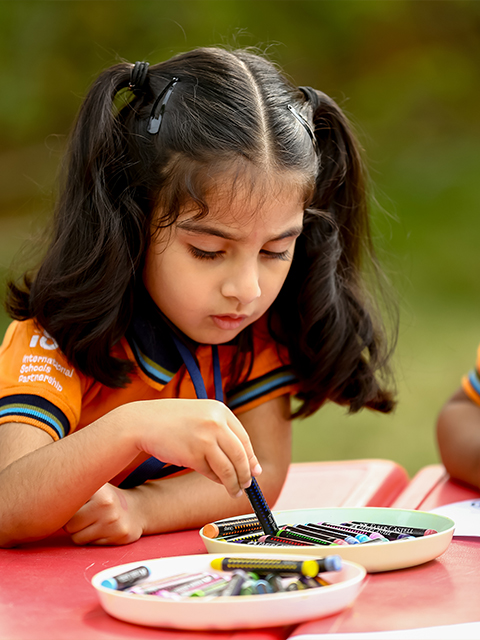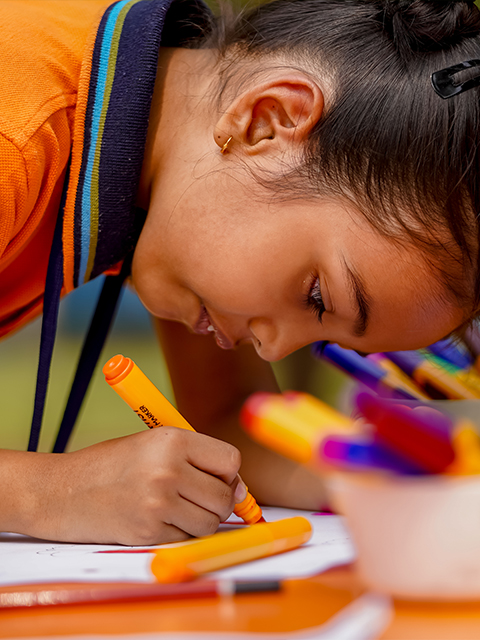Experience world class Pre-Primary School Curriculum at Manthan School Hyderabad
Our pre-primary school curriculum is designed to enhance the developmental characteristics of each age group. The main pillars are social-emotional learning, cognitive and speech development, and creative expression through art. The teachers use their knowledge, expertise and experience to bring our curriculum alive in their classrooms.
Cognitive Development
Knowledge & Understanding
Concepts like the human body, foods, animals, environment, weather, festivals, neighbourhood, plants, and sea life are introduced at this stage.
Fine Arts
Our well-equipped music room, with instruments such as keyboards, drums, guitars, harmonica, computer, and music system, run by a well-trained music teacher, provides the perfect environment for students to learn and appreciate music.
Physical Education
Language & Phonics
Our daily learning activities, such as reading and discussing stories, rhymes, songs, and non-fiction texts, help students build their vocabulary and develop their language skills.

